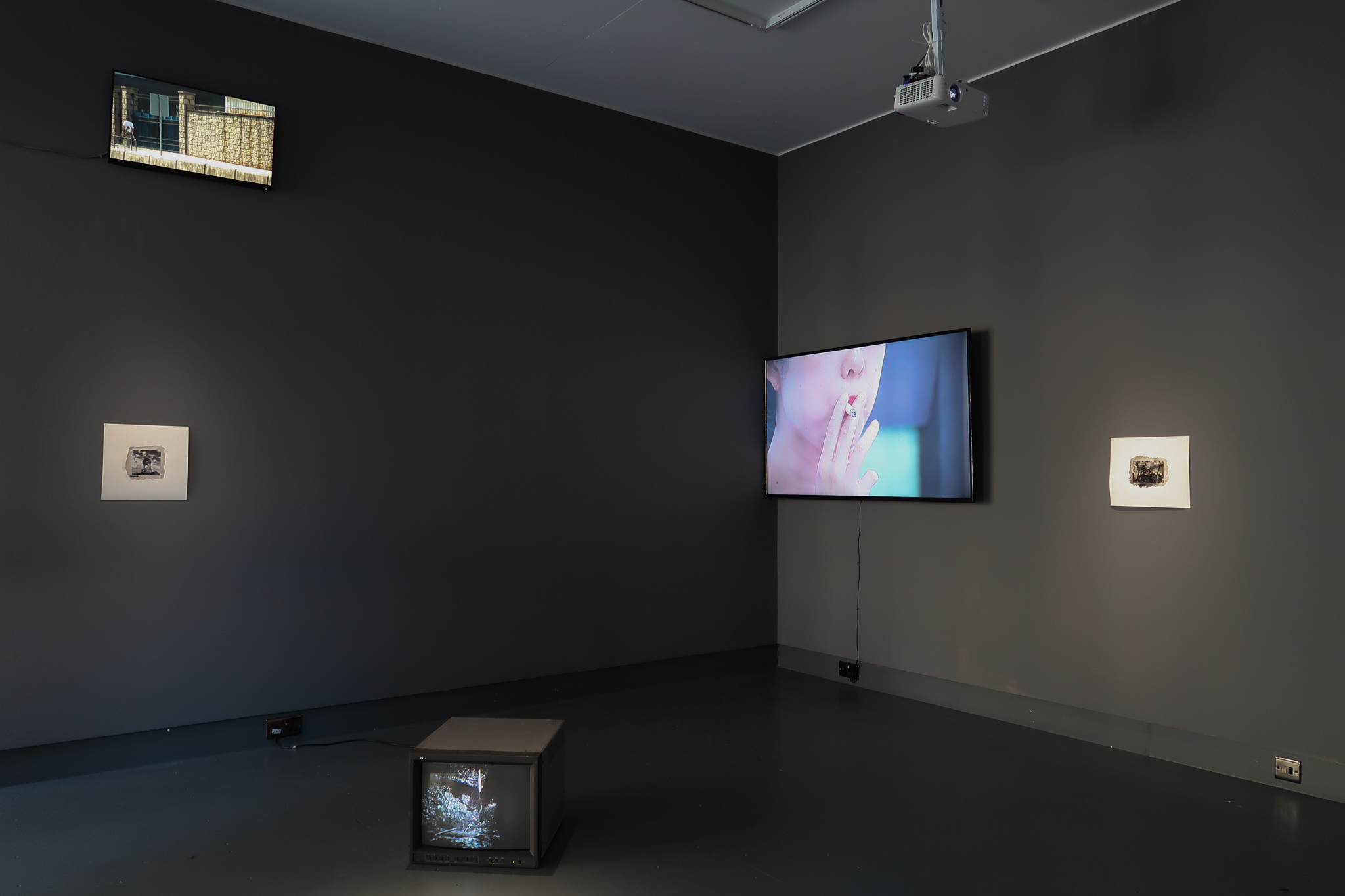
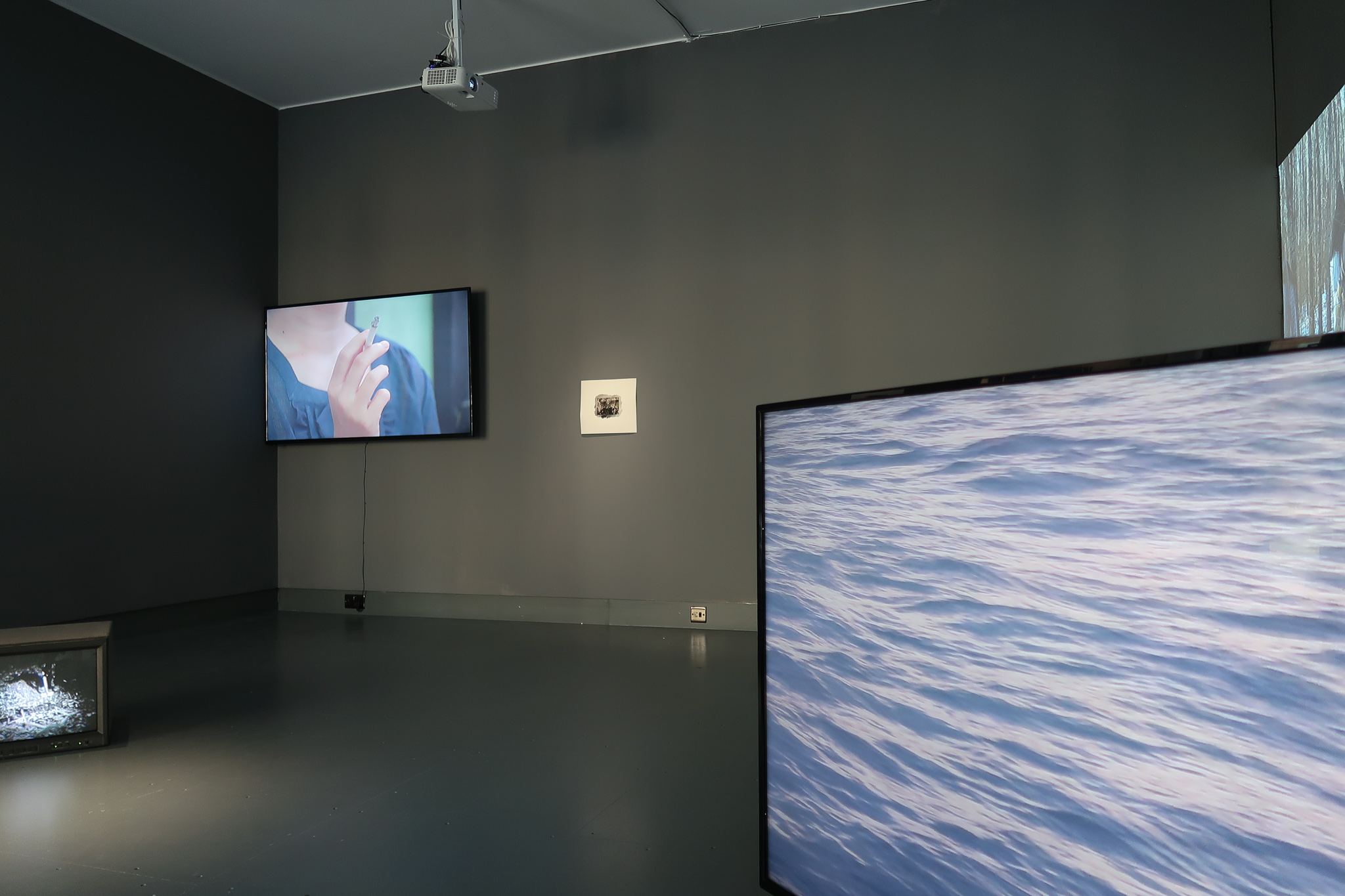
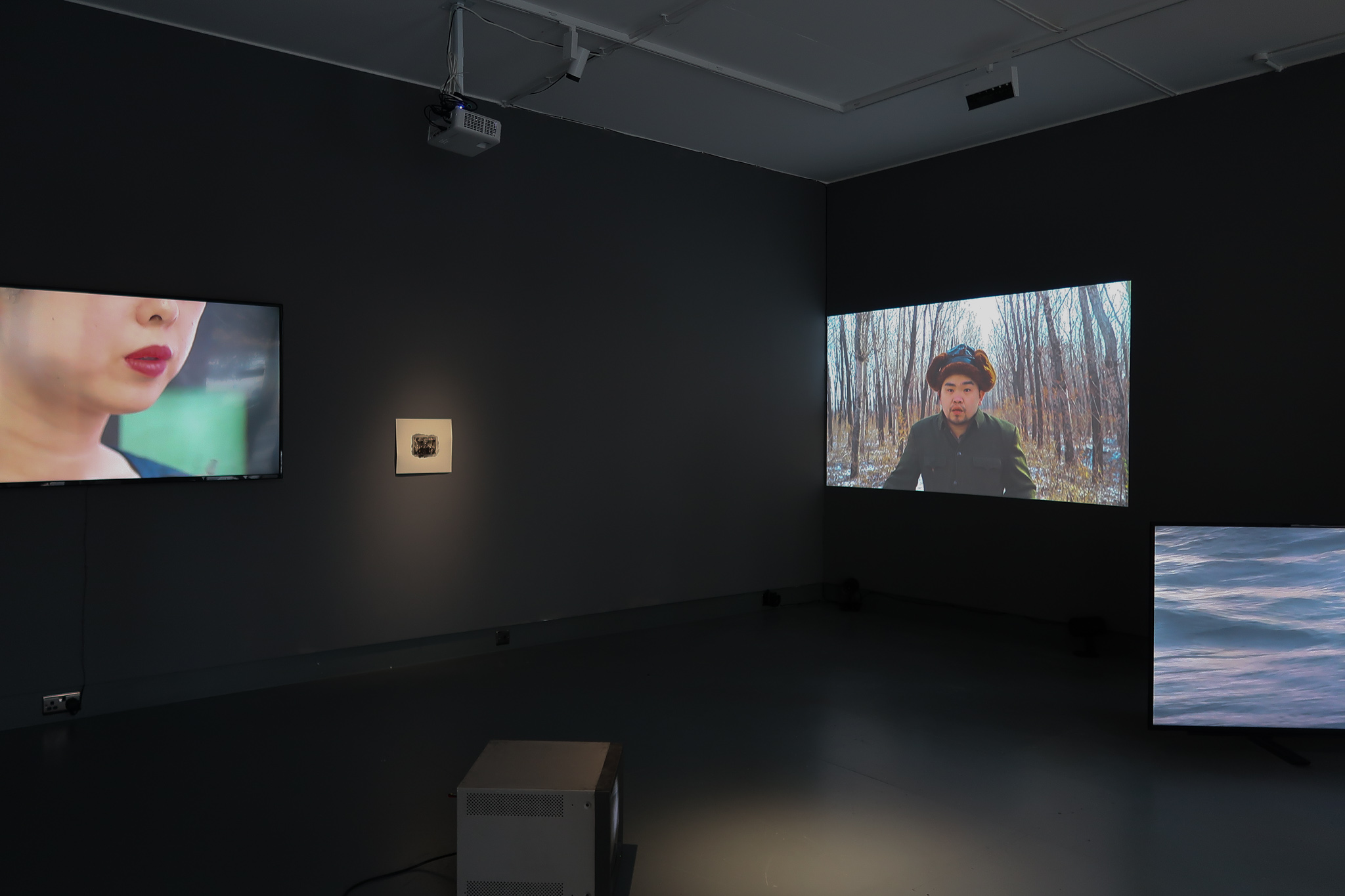
Lee Kai Chung
Opening: 05 October, 6-8 pm
Exhibition: 06 Oct - 11 Nov, 2022
London
Special Event:
A special screening and conversation with Lee Kai Chung & Yuhang Zhang at Close-up Cinma
08 Oct, 1-3pm, Close-Up Cinema
Event Documentation
“Late Port” is the first UK solo exhibition of the Hong Kong artist Lee Kai Chung, following his participation at the group show “I Could Not Recall How I Got Here” in 2021 at the gallery.
Juxtaposing several projects initiated by Lee between 2013 to 2022, the
exhibition attempts to re-examine the relationship between Lee’s earlier works
and his more recent projects. It highlights some of his most critically
acclaimed video series, such as the “Displacement (2017-current)”, within which one work is in the permanent collection of the M+
museum in Hong Kong.
Lee Kai Chung’s research and work embody the pain and insomnia of the body of history that conducts an autopsy of itself. Restoring, reinventing, and predicating the archival materials amongst the colonial and war history of 20th century and contemporary politics of East Asia, Lee attempts to map out the convolution between the logistics materials and population, the deathward infrastructure, and the fates of individuals.
Lee Kai Chung’s research and work embody the pain and insomnia of the body of history that conducts an autopsy of itself. Restoring, reinventing, and predicating the archival materials amongst the colonial and war history of 20th century and contemporary politics of East Asia, Lee attempts to map out the convolution between the logistics materials and population, the deathward infrastructure, and the fates of individuals.
Thoughts on the exhibition
text by Lee Kai Chung
The exhibition does not intend to review my works with a definite perspective. It rather revisits and juxtaposes two disparate creative practices, suggesting the underlying contexts and intertextual relationships.
Since around 2012, social movements in Hong Kong have become more frequent, and at that time, there was still room for free public discussion. As a citizen, who was not yet fully dedicated to artmaking, I wanted to look for materials about the local history of social movements, especially about the primary source materials in the post-colonial archives. By chance, I started to create archival and research-based works and had since developed a fundamental set of methodology. In my early work, I tended to respond to social changes in a more straightforward, embodied manner (i.e. The History of the Riots and The History of the United Front series), as the physical experience of in situ immensely inspired me. Thus, many of those re-enactment works allowed me to internalise my physical and perceptual experience. The archival materials provide fragmented clues and reflect the ideologies presented by the historiographers. Through my artistic practice, I am able to overlap the social situations in the past and the present.
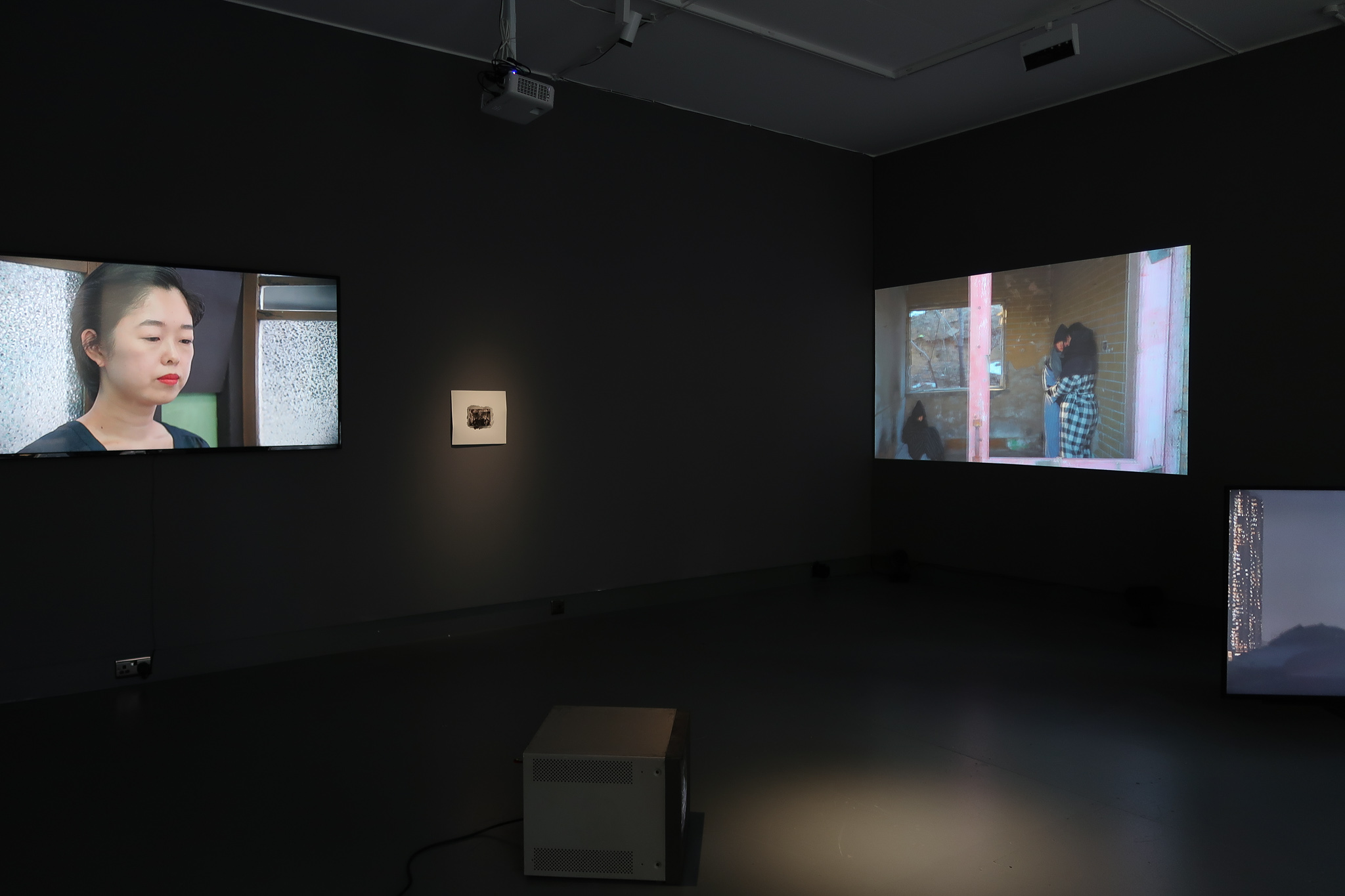
(Artwork from left to right)
The Smoking Lady, 2019, 9’43”
The Repatriats,2019, 29.4 x 32.7 cm
The Shadow Lands Yonder, 2022, 44’25”
The Relentless Voyage, 2020, 4’55”
After the social movement in 2014, I, like many Hong Kong citizens, was in a state of powerlessness. For about two years, I couldn’t create art. I have been thinking about how an individual artist could intervene and respond to the society, particularly in situations where lives were often at stake. Did artmaking seem utterly futile? Since 2017, my work has slowly transitioned to the Displacement series - in the context of Greater East Asia. Through researching migration, displacement and diaspora involved in war history, I intend to show the unarchivable in archives, the emptiness, and the time-transcendence of 'human' as a subject.
This exhibition urges me to re-examine the relationship between my earlier works and my more recent projects. Since 2019, re-enactment for me goes beyond a mere physical and bodily response, but more about rehearsal - the repetition of exercises that explores artist as an actor who searches for interstice in the oppressive, polarising power relations. This artistic representation perhaps provides a degree of spiritual and emotional nourishment, appeasing the collective sentiment of nothingness and offering a possible moment of inner peace.
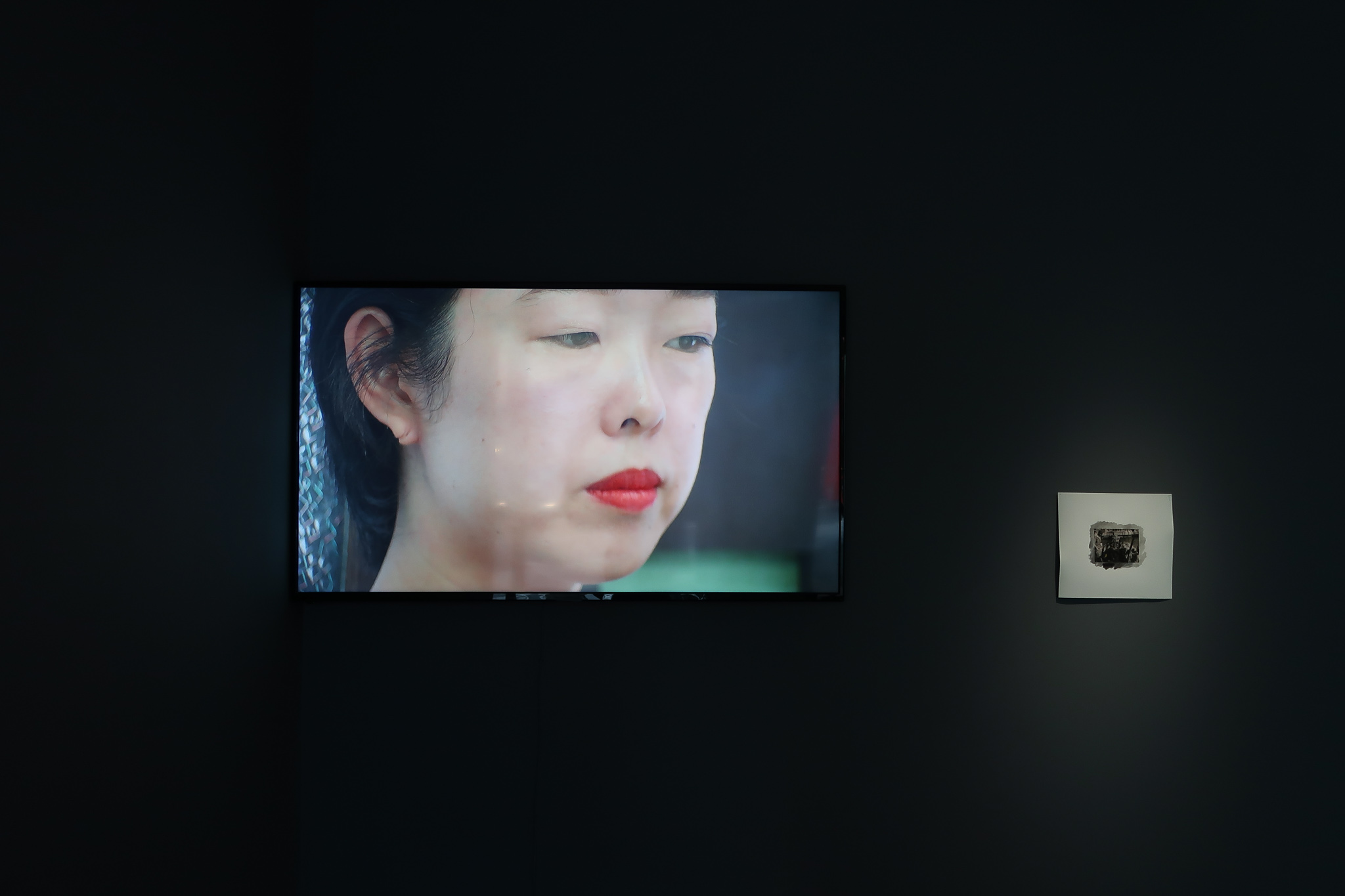
I imagine that the Displacement series in the exhibition could unravel the historical context and the experience of diasporic individuals from a humanistic perspective through critical fabulation, each of the project in the Displacement series has a certain complexity. In comparison, The History of the Riots and The History of the United Front series can demonstrate how art inspires an individual to break through the stagnation and hardship. The exhibition sets the series in a space intertwined with time, having the former and the latter entwined, taking the beholders on a journey through the ambiguous past and the present.
Lee Kai Chung (b.1985) is an artist based in Hong Kong, currently pursuing a Ph.D. program at the Chinese University of Hong Kong. He performs artistic research on historiography, ideology, and time-transcendence of emotion.
Some recent and upcoming exhibitions include Sharjah Biennial 15: Thinking Historically in the Present (Sharjah, UAE, 2023), Internationale Kurzfilmtage Winterthur (Winterthur, Switzerland, 2021), Seoul Mediacity Biennale 2018 (Seoul Museum of Art: Seoul, South Korea, 2018), 12th Shanghai Biennale: Proregress – Art in an Age of Historical Ambivalence (Power Station of Art: Shanghai, China, 2018), just to name a few.
Lee is the recipient/finalist of numerous awards and artist residency programmes globally, including: Taoyuan International Art Award (Taoyuan Museum of Fine Arts , Taiwan, to be announced in Q1 2023), The Robert Gardner Fellowship in Photography (Peabody Museum of Archaeology and Ethnology, Harvard University, the US, 2022), Altius Fellowship (Asian Cultural Council Hong Kong, Hong Kong, 2020), LOOP Barcelona Video Art Production Award (Han Nefkens Foundation in collaboration with Fundació Joan Miró, Finalist, Spain, 2019), Hong Kong Arts Development Awards (Hong Kong Arts Development Council, Hong Kong, 2018), WMA Commission Award (WYNG Foundation, Hong Kong, 2017), Artist Residency Aboard Funding Scheme (Hong Kong Gallery Association, Hong Kong, 2017), Changdong International Artist Residency (Museum of Modern and Contemporary Art (MMCA), Seoul, 2017).
His works are in the permanent collection of the M+ Museum (Hong Kong), Videotage (Hong Kong), Platespace (Beijing, China), and The University of Salford Art Collection (Salford, UK).
Some recent and upcoming exhibitions include Sharjah Biennial 15: Thinking Historically in the Present (Sharjah, UAE, 2023), Internationale Kurzfilmtage Winterthur (Winterthur, Switzerland, 2021), Seoul Mediacity Biennale 2018 (Seoul Museum of Art: Seoul, South Korea, 2018), 12th Shanghai Biennale: Proregress – Art in an Age of Historical Ambivalence (Power Station of Art: Shanghai, China, 2018), just to name a few.
Lee is the recipient/finalist of numerous awards and artist residency programmes globally, including: Taoyuan International Art Award (Taoyuan Museum of Fine Arts , Taiwan, to be announced in Q1 2023), The Robert Gardner Fellowship in Photography (Peabody Museum of Archaeology and Ethnology, Harvard University, the US, 2022), Altius Fellowship (Asian Cultural Council Hong Kong, Hong Kong, 2020), LOOP Barcelona Video Art Production Award (Han Nefkens Foundation in collaboration with Fundació Joan Miró, Finalist, Spain, 2019), Hong Kong Arts Development Awards (Hong Kong Arts Development Council, Hong Kong, 2018), WMA Commission Award (WYNG Foundation, Hong Kong, 2017), Artist Residency Aboard Funding Scheme (Hong Kong Gallery Association, Hong Kong, 2017), Changdong International Artist Residency (Museum of Modern and Contemporary Art (MMCA), Seoul, 2017).
His works are in the permanent collection of the M+ Museum (Hong Kong), Videotage (Hong Kong), Platespace (Beijing, China), and The University of Salford Art Collection (Salford, UK).
Tabula Rasa Gallery (London)
Unit One, 99 East Road,
Hoxton, London
N1 6AQ
Unit One, 99 East Road,
Hoxton, London
N1 6AQ
Tuesday - Saturday 12:00 - 18:00 | Sunday - Monday Closed
© 2022 Tabula Rasa Gallery